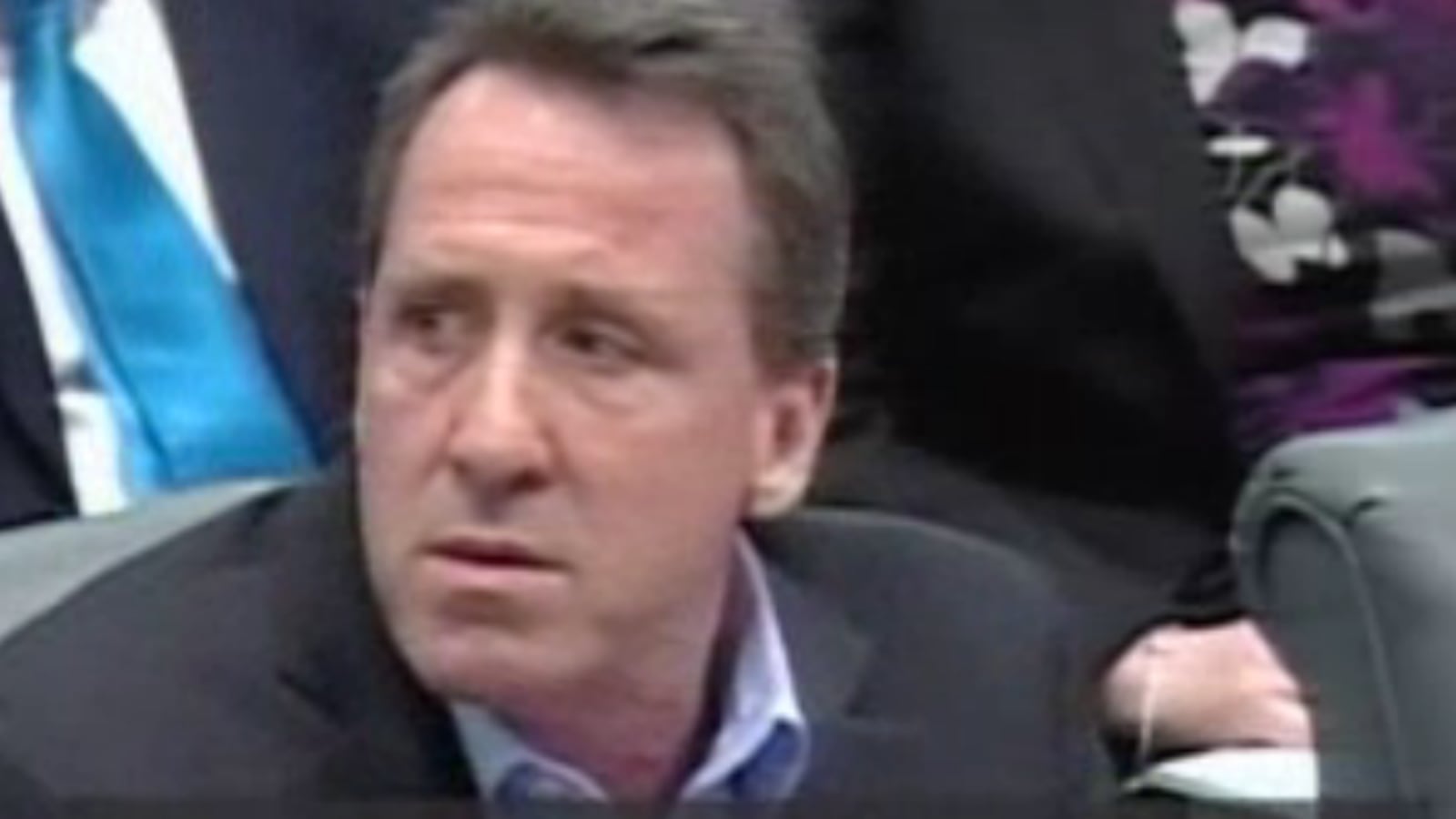Tuesday morning, I awoke to read a story at CTPost.com about discussion of gun safety in the Connecticut Capitol complex in Hartford. The story was headlined "Father of Newtown Victim Heckled at Hearing." I read the story and posted an excerpt and link, with this one line of editorial commentary:
"Yes, that's the actual headline on this CTPost.com story."
I then tweeted a couple of links to the CTPost story, the first at 6:56 AM (ET), the second at 7:01 AM (ET).
Later in the day, MSNBC aired a more tightly edited clip of the encounter between grieving father Neil Heslin and gun-rights advocates.
That MSNBC clip irked pro-gun bloggers and Tweeters. Various sites, including Michelle Malkin's Twitchy, posted the full video of Neil Heslin's testimony that had originally appeared on the town's website. Participants in those sites then began to fire off Tweets complaining that it had been wrong to describe the behavior of the gun advocates as "heckling."
I didn't see the MSNBC edit until pretty deep in the afternoon. By then, a live controversy was boiling. So I watched back-to-back first the unedited video and then the MSNBC version.
Here's what I saw:
I saw a father anguished by grief. He spoke at length, then posed a challenge to the people in the room. (I'm paraphrasing here) Why would anyone need an assault-style rifle anyway? There was a pause, and Heslin concluded that nobody did. That comment provoked the advocates, some number of whom began to shout "the Second Amendment" and to quote the amendment's text. At this, a look of pain crossed Heslin's face. It's very visible. The moderator ordered the gun advocates to be silent during Heslin's testimony, or else they'd be cleared from the room. Heslin finished without further interruption.
The MSNBC version sharply truncated this encounter. We saw the question, the retort, and the look of pain.
So what to think?
It's pretty hard for me to imagine anything that would make me shout across the room at a father who'd lost his son, no matter how much I disagreed with his reaction to that loss. There are lots of ways to express disagreement, and in such a case the best ways all begin with an expression of sympathy and condolence.
By that time, my Twitter feed had filled with many dozens of messages- maybe more - from people accusing me of "lying" by reproducing the CTPost headline. The common theme: Heslin wasn't heckled, because the people shouting at him were answering a question he himself had posed.
Some added the thought that the father was "fair game."
Many others hurled the word "liar" at those - like me - who had used the wording of the reporter present in the room.
By now there are many hundreds of these tweets, varying from vehement to vituperative, from accusatory to abusive.
I posted three replies:
First - (This was a reaction to the tweets on the "fair game" theme.)
Second - (This was a reaction to the parsing of the word "heckling")
And this - well that one is self-explanatory.
The day is over now and my Tweetdeck is shut. I've had some time to think through the exchange. One of the rules of the Internet is that a mistake doesn't become right just because the people pointing out the mistake behave obnoxiously.
So, in retrospect, I'll concede this: the CTPost' s use of the word "heckling" was misjudged, and it was not the right word for me to have repeated.
I didn't see and wasn't influenced by the MSNBC video, but I'll agree: it was edited too tightly and in a way that made treatment of Neil Heslin look worse than it was.
Yet it remains most fundamentally true: people in that room interpreted their gun advocacy as license to shout at a grieving father. Whether you call it "heckling" or something else, it's just wrong. And the impulse to parse, excuse, condone that we saw in blogs and on Twitter afterward was very nearly equally wrong: a substitution of ideology for basic human sympathy.
When you write in the rapid media of the digital age, it's inevitable that you will make mistakes. "Heckling" was not the exact word to describe what happened in this case, and I made a mistake in repeating it.
However, that mistake is not the only - or most significant one - to occur in the public debate over this incident in Hartford.
There were gun advocates in that room who waited for their turn to be heard and who refrained from confronting a grieving man. A few did otherwise. They did wrong, and whether you call that wrong "heckling" or something else does not alter its wrongness.
And those in the wider public who use the new media of blogs and Twitter to condone and justify the people who shouted at Neil Heslin - those who'd represent the shouters as the true victims of the encounter - those who suggest that the most important part of the Newtown story is one more tedious replay of the debate over "media bias" - they do very nearly as wrong.
I don't block Twitter followers. I think part of the ethic of journalism in the digital age is to be accessible to those who want to reach you - and, yes, criticize you. Sometimes the criticism takes the form of crude personal insult. That's a cost of doing business. Other people take a lot more than I do without being discouraged, so I would have no excuse if I allowed myself to be discouraged either. But too much exposure to so much anger and ugliness does have its depressing effect. And I hope, I very much hope, that Neil Heslin does not have a Twitter account. This loving and bereft man deserves more and better from his fellow human creatures than he has received.






